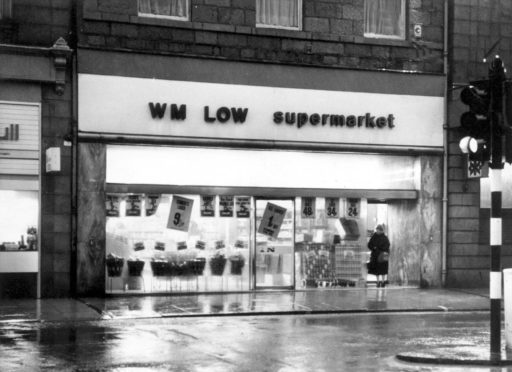My whole life revolves round meeting people, socialising in cafes and giving talks to various groups. So I am feeling the effects of lockdown.
It brought me back to the early 1960s when Aberdeen was hit with a Typhoid epidemic.
The city was rocked and slightly panicked when we were told we had to take stringent measures. It started with two cases and rocketed up to 400 within a month.
Aberdeen’s chief medical officer, Dr. Ian MacQueen, took charge of the city and gave briefings twice every day. They were covered, and people were updated by our local papers Press & Journal and Evening Express. Grampian television which, unlike today where it’s all controlled by Glasgow, was a genuine local independent television station. They reported factual information and advised the public to wash their hands regularly and every individual was to keep their own towel. No sharing. There were no local radio stations in those days. All schools were closed to prevent the spread among children.
Our school teachers worked round the clock to prepare lessons for children to do during the break. Unfortunately, and to my shame, I never did them. My parents were still allowed to go to work under stringent conditions and I spent most of my day on my bicycle or playing the piano! Fortunately, it was a warm summer. The schools never went back until after the summer holidays.
We saw sad pictures of children in the city hospital speaking to their parents through the hospital windows as no close contact was allowed.
The cause of the outbreak was a contaminated tin of corned beef which originated in South America and was sold by William Lows supermarket. The meat had infected the slicing machine in the shop which caused the disease to spread throughout the city.
Needless to say Lows trade plummeted and their shop in Aberdeen eventually closed.
It was all cleared up by the end of the summer. However the tourists mainly from Glasgow and Edinburgh, who used to flock in their thousands, gave us a wide berth that year, due to the negative publicity the city received in the national media, and in spite of a public relations visit to the city by HRH the Queen.
However, every cloud has a silver lining.
Following on from that typhoid outbreak, several things changed all over the UK.
There was a need for better, higher standards of hygiene in the food serving and cleaning if machinery. I remember how when we bought bags of chips, they were wrapped in proper paper instead of old newsprint, and we were given a small two-pronged wooden fork to eat them with rather than use our hands. Food servers’ hair had to be tied up, shop and cafe assistants serving cakes etc had to use either latex gloves or tongs. The roller cloth towels in the public toilets were considered a source of cross infection between people and were subsequently replaced by paper towels and eventually warm air dryers.
As a result, Aberdeen became world renowned for being a clean city in which people were safe and a great place to live and work.
The University of Aberdeen developed an international reputation in the field of disease control, something which remains today.
Many years later, as council leader, I remember constantly lobbying the government and eventually succeeded in getting the Food Standards Agency located here.
It has to be said in hindsight this was small in relation to the epidemic we are dealing with today.
But several things helped. To be fair people didn’t travel around as much. Few went abroad for holidays and most families remained in the city where they grew up.
People did as they were asked. They did wash their hands and avoided unnecessary contacts. There was no panic buying. Aberdonians behaved in a sensible and responsible manner towards each other.
Ironically the current pandemic has thrown up many of the problems in our society.
There is a lack of trust in our leaders, poor investment in our hospitals and NHS staff. The issues of isolation for older people, mental health problems, an inadequate welfare system, low wages, the inability of the inland revenue to adapt systems quickly and in a flexible way, lack of public sector response due to staff shortages.
The list goes on. All issues which have been debated and highlighted by various charities, to both our governments, but have failed to be addressed for over a decade.
On the plus side, society has recognised the value of our carers, medical staff, cleaners, bin men, delivery drivers, posties etc. We are finding new ways of working, We are housing the homeless in unused hotels. Some really good initiatives borne out of necessity.
This is why it’s so disappointing that in today’s crisis some people are disregarding the sensible advice. As Mahatma Gandhi said “Nothing spreads faster than greed and selfishness”. Bulk buying is selfish and its also depriving the vital key workers on whom we all depend as well as vulnerable people.
Encouragingly, there are a massive amount of honest caring volunteers helping to support people and their communities, delivering food parcels, making phone calls etc. It never ceases to amaze me how, despite everything, the milk of human kindness always comes through.
A crisis always throws up the very best in human beings – unfortunately it also brings out the worst. So, you should ask yourself, which side are you on?
Len Ironside is a former champion wrestler who served as an Aberdeen councillor for 35 years, four years as council leader

